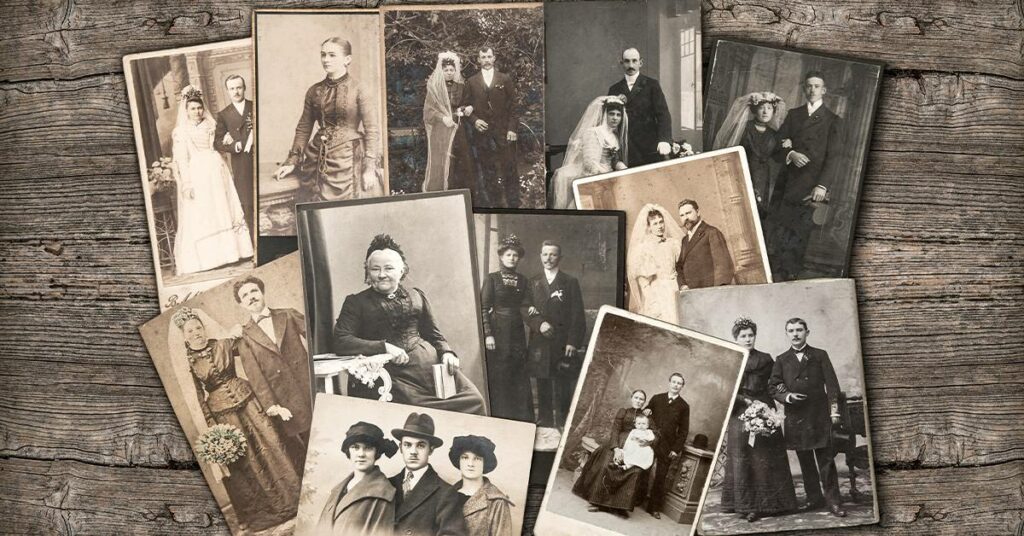For many years, I struggled with identity. There were different points in my life where I didn’t know exactly who I was, and I had no idea how to figure it out. Part of my identity crisis stemmed from the culture which I grew up in.
I consider myself African-American. However, I grew up in a household with a relative who didn’t like that term. She was born in the 1940s and lived through segregation and the Civil Rights Movement. She prefers to be called black. She does not want to have any connection with Africa whatsoever. This was always perplexing for me because I always knew that I had an ancestral connection with the continent.
I did not know, however, to what extent I was connected. I would like to say that I have no problem identifying with either term: black or African-American. In my opinion, they are synonyms. Today, I use them interchangeably.
I noticed one of my other relatives who traced their history on Ancestry.com. I was inspired and decided to do the same.
Ancestry.com mails you a tube to fill with saliva. You then mail it back to the research lab and they send you DNA results months later.
The great thing about the company is that you only need to send one sample and they will continue to update your DNA story. The sample does not change, but the science behind it does, giving the research lab the opportunity to submit more accurate reports over time. My DNA percentages have changed, but the overwhelming majority of the data remains the same.
26% of my DNA comes from Western Nigeria. I have the blood of the Hausa, Fulani and Yoruba in my veins. I especially enjoy learning about Yoruba culture, there is something that feels like home every time I discover something new.
19% is from Cameroon, Congo and Western Bantu people. I am proud of this part of my heritage, and I know other people from these regions as well. I think it’s awesome that we can share this connection.
12%, Sweden and Denmark. I always knew that I had European ancestry but I was surprised to see these two countries on the DNA report.
9%, Senegal. I do not know anyone from this country, but I did visit a Senegalese booth at the Black Expo in St. Louis one year. I appreciated the opportunity to learn about the culture and enjoy some of its great cuisine.
8%, Benin and Togo. These are two smaller countries with distinct cultures and I am happy they are apart of who I am today.
6%, Mali. I remember learning about King Mansa Musa and his trading on the Silk Road during history class. I’ve always enjoyed learning about this history, but I did not know when I was studying that I was learning about my ancestors.
6% Ivory Coast and Ghana. I believe these are two of the most hospitable countries in the world. The people are inviting and they truly want you to experience their culture. I believe I have these characteristics in my personality as well.
5%, Scotland. This lined up with my expectations, I knew I probably had some DNA from the territory and I pretty much guessed how much as well.
3%, Nigerian-East Central. This part of the country is mostly inhabited by the Igbo people, who are a part of me just like the other ethnic groups in the country.
3%, England and Northwestern Europe. Given the history of black people in England, I thought I would have a lot more English ancestry. I was very surprised at the amount of English heritage I have. I have family members with significantly higher DNA, which makes my data even more surprising.
1%, Northern Africa. In a previous life, I could have been an ancient pharaoh or Moor who was friend to Shakespeare’s Othello. I have always enjoyed studying the region, and it’s nice to know that I have a connection to it. In an earlier report, it listed 1% Persian but it was later changed to Northern Africa.
1%, Aegean Islands. Ethnically the people here are both Turkish and Greek. Since I’ve learned about the area, I’ve tried to find out new things about the territory and its people.
1%, Basque. Ethnically the people are both Spanish and French. They live on the border between the two countries. If you live on Spain’s side, then the Basque speak Spanish. If you live on France’s side, then you speak French. There is also a Basque language. I was not surprised to see French ancestry given the history of black people in the country. I was however surprised to see Spain as I did not know that I had a connection to the country.
All of these cultures make up my DNA report. I am proud of them all. I now know who I am and therefore, I can project where I am going. Being black or African-American is a multi-cultural experience. I am a melting pot, and I am proud of my ancestors and the ways that they lived throughout history.
I was inspired to write this story because of recent comments by Smokey Robinson. He does not like the term African-American either; he believes it denies people their American heritage. I respect his opinion, but I prefer to embrace my complete self, my ancestry in America, Africa and Europe together.

